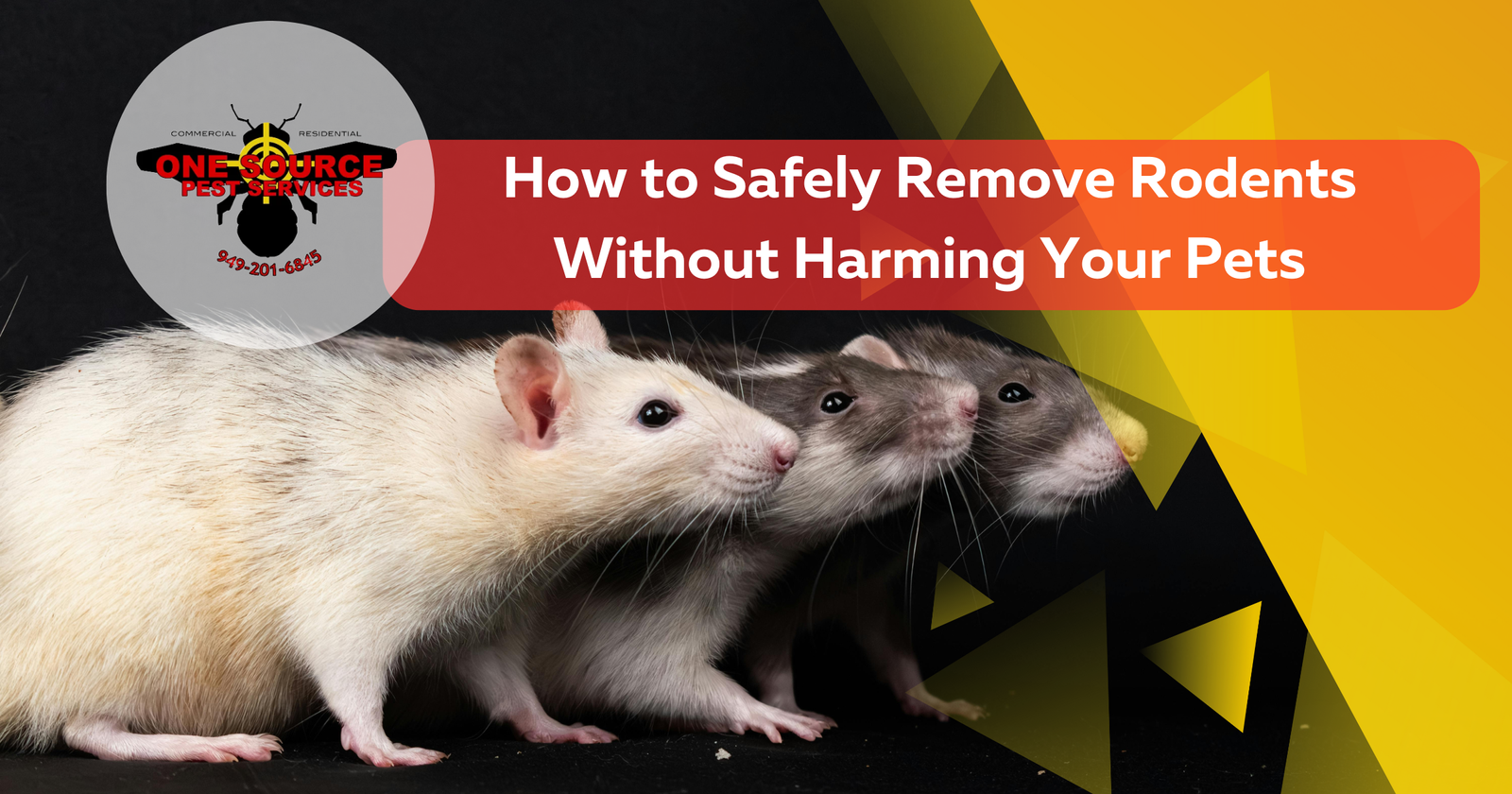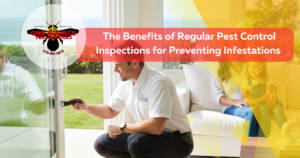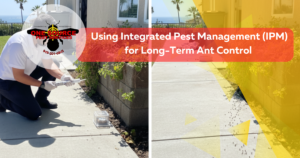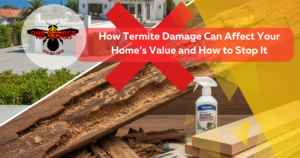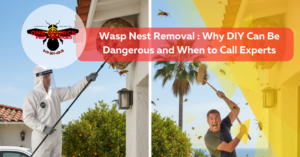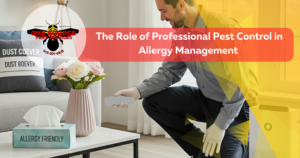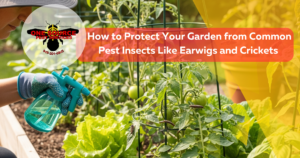Dealing with a rodent infestation can be a stressful experience, especially if you have pets in your home. While rodents pose a threat to your property and health, it’s crucial to choose removal methods that don’t put your pets in danger. Traditional rodent control methods, such as toxic poisons or dangerous traps, can harm pets if they come into contact with them. Fortunately, there are safe, humane, and pet-friendly alternatives for rodent removal that will allow you to protect your home from pests without endangering your animals.
In this article, we’ll cover the best practices for safely removing rodents from your home while keeping your pets safe. We’ll explore natural deterrents, humane traps, and other methods that provide effective rodent control without compromising the health of your pets.
1. Seal Entry Points to Prevent Rodent Access
One of the first steps in rodent control is preventing them from entering your home in the first place. Rodents can slip through surprisingly small gaps and cracks, so thoroughly inspect your home for any potential entry points. This includes checking around doors, windows, pipes, vents, and cracks in the walls or foundation.
How to Seal Entry Points:
- Use steel wool to fill small holes and cracks, as rodents can’t chew through it.
- Caulk gaps around windows and doors.
- Install weatherstripping to close gaps around doors.
- Consider using rodent-proof mesh or hardware cloth to cover vent openings or gaps in the foundation.
By sealing these entry points, you reduce the chances of rodents getting inside, making it less likely that you’ll need to deal with an infestation.
2. Use Pet-Safe Rodent Traps
If you’re already dealing with rodents in your home, pet-safe traps can help you safely remove them without harming your pets. There are several types of traps available that don’t use harmful chemicals or poisons.
- Live traps: These traps capture the rodent alive, allowing you to release it outdoors away from your home. Live traps are ideal for pet owners because they don’t cause harm to the rodent and keep pets safe.
- Snap traps: If you opt for snap traps, ensure that they are placed in areas inaccessible to pets. For example, place them inside cabinets or under furniture where your pets can’t reach them.
When using traps, always check them frequently to prevent distress to the captured rodent and ensure that your pets are not able to interact with them.
3. Natural Rodent Deterrents
Using natural deterrents is a safe and pet-friendly way to repel rodents from your home. These solutions don’t rely on chemicals and are typically safe for pets.
- Peppermint oil: Rodents dislike the strong scent of peppermint. Soak cotton balls in peppermint oil and place them in areas where you’ve seen rodent activity, such as entry points or near food storage areas. You can also mix a few drops of peppermint oil with water in a spray bottle and spritz it in affected areas.
- Cayenne pepper or cloves: Similar to peppermint oil, cayenne pepper and cloves have a strong odor that rodents find unpleasant. Sprinkle these substances near entry points or in areas where rodents are likely to gather.
These natural repellents won’t harm your pets but can help keep rodents away from your home.
4. Use Ultrasonic Rodent Repellents
Ultrasonic rodent repellents emit high-frequency sound waves that are unpleasant for rodents but are inaudible to humans and pets. These devices are often used to deter rodents from entering certain areas of the home without the need for poisons or traps.
How They Work:
- Ultrasonic devices emit sound waves that interfere with rodents’ ability to navigate and communicate. This discourages them from staying in the area.
- These devices are completely safe for pets, as they do not cause any harm to animals.
Place ultrasonic repellents in areas where rodents are active, such as attics, basements, or crawl spaces, to effectively keep them away without affecting your pets.
5. Pet-Safe Rodent Baits
If you must use baits, there are pet-safe alternatives available. These baits contain non-toxic ingredients that make them safe for pets but still effective at attracting and eliminating rodents.
- Food-based baits: Non-toxic food-based baits can be used to lure rodents into traps. These baits contain ingredients like peanut butter, oats, or seeds, which are harmless to pets but irresistible to rodents.
- Non-toxic rodent poison: Some rodent poisons are designed to be safe for pets and children. These poisons typically use natural ingredients that don’t pose a threat to your animals but are still effective in eliminating rodents.
When using any type of bait or poison, always follow the manufacturer’s instructions carefully and place the bait in areas where pets cannot access it.
6. Maintain Cleanliness and Food Storage
Rodents are often attracted to food sources in the home, so keeping your living spaces clean and food properly stored can help reduce the likelihood of an infestation. This is especially important in kitchens and dining areas.
- Store food in sealed containers: Make sure all food, including pet food, is stored in airtight containers. Rodents can easily chew through cardboard or plastic packaging.
- Clean up crumbs and spills: Regularly sweep and wipe down counters to remove food remnants that might attract rodents.
- Dispose of trash regularly: Make sure trash is properly sealed and disposed of in bins that rodents cannot access.
Maintaining a clean environment will make your home less appealing to rodents, reducing the chances of an infestation.
7. Seek Professional Pest Control Services
If you’ve tried the above methods and still have a rodent problem, it may be time to call in a professional pest control service. Many pest control companies offer pet-safe and humane rodent removal options. These experts can assess the situation and use the most effective methods for removing rodents without endangering your pets.
Before hiring a pest control service, make sure to ask about their pet-friendly and humane treatment options. Reputable companies will prioritize your pets’ safety while ensuring the problem is handled efficiently.
Conclusion
Dealing with rodents in your home doesn’t have to mean putting your pets at risk. By using pet-safe rodent removal methods, such as sealing entry points, humane traps, natural repellents, and ultrasonic devices, you can protect your home from rodents without harming your pets. Regular cleanliness, proper food storage, and professional pest control services will also help you maintain a safe and pest-free home. With these methods, you can safely and effectively manage a rodent problem while keeping your furry friends safe and healthy.

